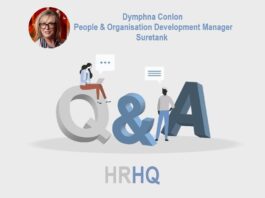by Deirdre Kelleher, Senior Business Director, Hays Ireland
Do your pay rises match up to the rising cost of living? From soaring mortgages and rent payments to rising fuel and grocery costs, inflationary pressures continue to impact our daily lives and shape our career choices.
While wages have grown in the past 12 months, is this uplift strong enough to compete with an ongoing cost-of-living crisis, a lack of affordable housing, and wider inflationary pressures? For certain industries and professionals, there appears to be some way to go.
Looking at the survey results from our Ireland Salary & Recruiting Trends 2024 guide, distilling insights from 1,400 professionals, it’s clear that thoughtful salary strategies will prove pivotal when securing talent in a hiring market heavily influenced by economic uncertainty and prevalent skills shortages.
What’s driving salary increases – and are they enough?
Our survey data shows that four-in-five employers (79%) have increased staff pay over the last 12 months, comparable to the previous year (83%). Sustained salary momentum is largely the product of widespread skills shortages – experienced by 94% of employers – and fierce competition for talent. However, the economic climate continues to have a noticeable influence on higher salaries too, with well over half of employers accrediting staff pay rises to the increased cost of living (57%) – on a par with the year prior (58%).
But how far have these pay increases helped alleviate rising living costs? Of the employees we surveyed who received a cost-of-living pay rise over the last 12 months (21%), less than half (45%) say this has had a noticeable impact on their life. The cost-of-living squeeze might be easing for some, but current wage growth may not be enough to reconcile rising daily expenses and an enduring housing crisis, potentially causing an exodus of young Irish talent.
Minimum wage earners hit hardest
Our latest data reported a 3.6% average salary increase across the professions we surveyed, driven chiefly by the increased cost of living and ongoing skills shortages. While wage growth continues though, there’s an indication that not everyone is benefiting equally from this upward trend. Certain professions saw higher-than-average pay increases this year, such as accountancy and finance (5.5%), legal (4.7) and technology (4.3%) – industries that typically offer larger base wages.
“It’s been calculated that many Irish households will be €7,500 worse off over the next year”
However, it’s lower-paid workers who may be the worst effected, with one report suggesting many families on social welfare paid a third of their household income on basic healthy foods. And when factoring the true cost of living, it’s been calculated that many Irish households will be €7,500 worse off over the next year when compared with the 12 months up to September 2021.
A proposed 12% increase to the minimum wage could help alleviate financial strains for lower income households – much higher than the average overall increase of 3.6% in the last 12 months – so employers need to be mindful about what wider support they can offer their staff and prospective candidates when creating a positive workplace culture. Flexible working policies could be especially welcome as employees look to save on commuting costs and childcare.
Rift in attitudes regarding pay transparency
Navigating a fluctuating landscape of salaries and inflation rates already poses a formidable challenge for professionals seeking the true value of their earnings, but are employers complicating the situation further? Our survey data reveals a glaring misalignment in attitudes between organisations and their staff when it comes to pay transparency, possibly at the expense of the employer experience. Four-in-five employees (82%) believe it’s important that their organisation is transparent regarding pay levels and pay rises. While 71% of employers believe this to consistently be the case within their organisation, less than half (45%) of employees agree.
Alongside bolstering talent and retention efforts, fielding a transparent pay policy is an important way for organisations to secure employee trust and productivity. Consider enlisting an independent salary benchmarking service to help your organisation formulate an impartial renumeration strategy that’s in tune with the economic landscape.
Rising living costs pushing people to move jobs – in most cases
The cost-of-living crisis is having a clear impact on job movement. Our latest data revealed that nearly half (49%) of employees say the current cost of living is making them more inclined to change jobs, mainly due to their current salary not being enough to cover living expenses (64%).
Not everyone is willing to gamble the security of a steady job though; over one in five employees (22%) say the cost of living is making them less likely to want to make a move, with 41% being worried about leaving a secure position.
“Nearly half (49%) of employees say the current cost of living is making them more inclined to change jobs”
Escalating costs continue to occupy the minds of both organisations and employees. Employers who can navigate the equilibrium between business expenses and employee compensation will be better positioned to attract and retain the essential talent required to outpace hiring challenges and achieve success in the upcoming months.
About the author
Deirdre Kelleher is a Senior Business Director at Hays Ireland’s Enterprise Solutions division. She is responsible for the successful delivery and relationship management to a suite of clients. Her expertise includes RPO, MSP & CMO.









